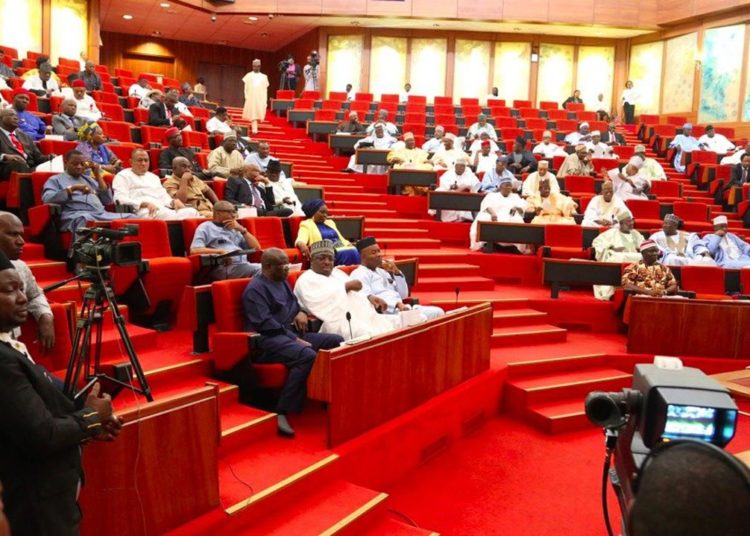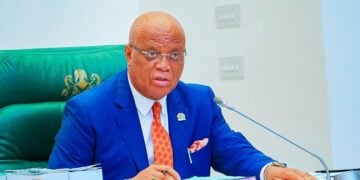A disagreement has emerged between southern and northern senators on the push for Nigeria to revert to a regional governance model.
This unfolded during a two-day retreat focused on amending the 1999 constitution, organised by the Senate Committee on Constitution Review in partnership with the Policy and Legal Advocacy Centre (PLAC) in Kano.
Northern senators expressed strong opposition to the idea, while their southern counterparts welcomed it as a means to boost the economy, enhance security and accelerate infrastructure development.
Senate Leader Opeyemi Bamidele reassured the public that the topic of regionalism is not part of the current constitutional review.
Abdul Ningi, a senior Senator from Bauchi Central, voiced firm opposition to regional governance, citing a lack of development experienced under the system during the First Republic.
He stated, “I have heard much discussion about regional government and federalism. However, the current 1999 Constitution remains the foundation, and it outlines the amendment process.”
Ningi questioned the legitimacy of those advocating for regional governance, asking when they received the mandate to represent their ethnic groups in such matters.
“Only members of the National Assembly have the authority to look at and amend the Constitution,” he asserted, emphasising that his constituency does not support the idea. He called for reforms to the existing federal government structure instead.
Senator Sani Musa, chairman of the Senate Committee on Finance, warned against confusing the establishment of Zonal Development Commissions with regionalism. He explained that these commissions were intended solely for social and economic development within their regions, urging advocates for regionalism to present their proposals through proper legislative channels.
Former Senate Leader Ali Ndume dismissed the notion of true federalism as outdated, suggesting that the focus should be on creating strong institutions to promote good governance and combat corruption and insecurity.
“When effective governance is established, there will be no demand for true federalism, as justice, equity, and fairness will prevail across regions,” he stated.
Senator Muntari Dandutse, representing Katsina South, also opposed regional governance, asserting that the ongoing retreat aims to rectify long-standing issues within the nation’s constitution. He emphasised the need for good governance and responsible resource management, noting that Nigeria is rich in potential.
Conversely, Senator Abdulfatai Buhari of Oyo North defended the regional system, recalling its success in harnessing resources during the First Republic. He argued that a less centralized government could reduce corruption by encouraging local accountability.
When asked if the South West region has a specific agenda for the constitutional review, Buhari indicated that details would be shared at the appropriate time, as the region’s representatives had agreed on a unified approach.
Senate Leader Bamidele reiterated that changing the structure of governance cannot be accomplished through constitutional amendments alone. He noted that such a shift would require broad political consensus and public support, stating, “Amending even a single provision of the constitution is a complex process that necessitates the involvement of all legislative chambers.”
The debate over regional governance continues to polarize Senators, with significant implications for Nigeria’s constitutional future.











